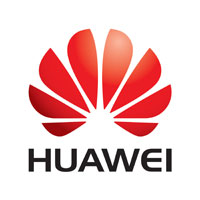  Huawei, a leader in providing next-generation telecommunications network solutions for operators around the world, today launched two types of copper access cards with unparalleled port density: the 48-port COMBO card and the 64-port VDSL2 card. These products will enhance solutions in public switched telephone network (PSTN) migration and broadband access, and will enable operators to decrease OPEX by reducing room size by 30 to 50 percent.
Mr. You Yiyong, President of Huawei’s Access Network Product Line, said, “Dedicated to our customers’ demands, Huawei has never stopped innovating in the fixed access arena, including copper access, and strives to help operators maximize the potential of copper wires and provide the best products and solutions to their customers.”
Combining ADSL2+, voice, and splitter functions in one card, the 48-port COMBO card significantly reduces the amount of required space in telecommunications rooms, simplifies copper cable routing, and reduces total power consumption. The 48-port COMBO card also assists in integrating traditional time-division multiplexing (TDM) voice systems into future-oriented VoIP systems, while also providing broadband access. Devices equipped with the COMBO cards will not only have a higher degree of integration but will also be up to 70 percent smaller.
In cases when ADSL is unable to provide sufficient bandwidth for fast-growing services (such as high-bandwidth video services), VDSL2 is a viable alternative, as it is able to provide over 50M of bandwidth, while reusing the existing copper wire networks. With an energy-efficient design, the 64-port VDSL2 card can be equipped with either an embedded or an external splitter to accelerate the deployment of VDSL2. With an embedded splitter, the 64-port VDSL2 card can significantly increase the integration of devices, and, as a result, the room space can be saved by at least 50%.
Furthermore, both cards are equipped with the MELT line test function, enabling them to quickly identify line faults, eliminating the need for investment in dedicated test instruments, and thereby reducing OPEX.
To date, Huawei has served one-third of all global broadband users with its SingleFAN solution, providing super broadband access that enriches people''s communications and their lives.
|